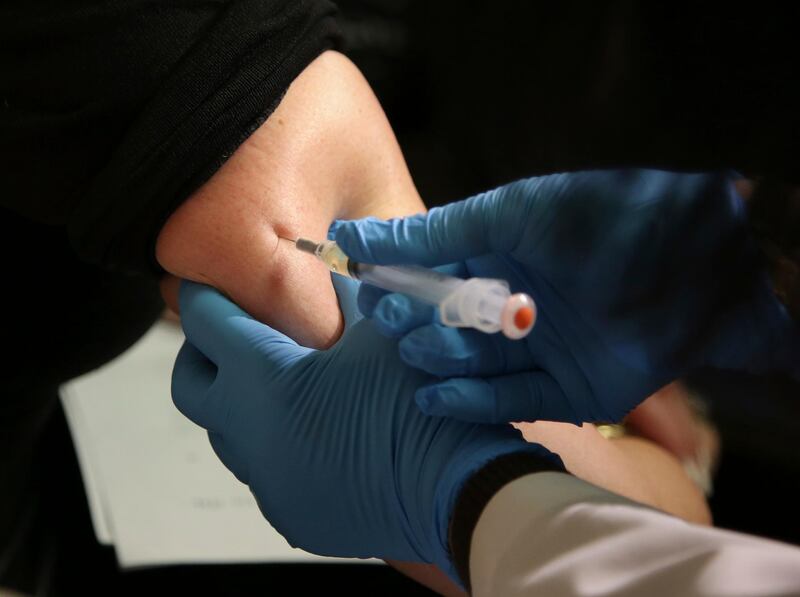The UAE is bucking a global trend with a significant reduction in measles cases, while the disease is on a worrying rise in the rest of the world.
According to data released by the World Health Organisation, the number of cases of measles tripled worldwide in the first three months of 2019, compared to the same period last year.
The largest increase was in Africa with a 700 per cent rise in cases.
But the worst affected countries included Ukraine, Madagascar and India, where there were tens of thousands of cases per million people.
In the UAE, there have been only nine confirmed cases of measles reported so far this year, compared to more than 60 in the same period in 2018, according to data from WHO.
In total, there were 173 confirmed cases reported of measles in the UAE in 2018. That was up from the 118 recorded in 2017.
But it was significantly less than the high of 826 cases documented in 2015. The same year, a countrywide mandatory measles immunisation programme was launched for everyone aged between one and 18 years old.
Parents of children who had already had two doses could decline the vaccination, as could those with medical exemptions, such as an allergy to vaccines.
At the time, the authorities said it wanted to inoculate 1.5 million children and teenagers in the Emirates against measles.
Measles is a highly infectious virus which spreads through the air when someone coughs or sneezes. If one person has it, nine out of 10 people will become infected if not properly protected to exposure.
You can even catch it by just being in a room where a person with measles has been. The virus can stay alive up to two hours after they have left the room.
The disease can be fatal and kills around 100,000 people, who are mostly children, each year, according to WHO.
Between 2001 and 2013, more than a quarter of children younger than five-years-old who caught measles in the United States had to be treated in hospital, with complications including pneumonia, encephalitis, or inflammation of the brain, deafness and death.
The best way to protect against measles is to receive the MMR vaccine, which was once erroneously linked to autism in a now widely discredited study by disgraced former doctor Andrew Wakefield.
It later emerged that many of the families included in Wakefield’s case study were part of a legal action against the MMR jab manufacturer. And Wakefield, who was later struck off as a doctor for his part in the research, had received funding from the solicitors for the cases to provide evidence of support.
Many parents continue to believe the findings of the study even after it was retracted by the The Lancet medical journal it appeared in. They tend to shun the vaccine, which researchers believe has, in part, lead to a rise in cases worldwide.
According to WHO, unvaccinated young children are at the greatest risk of contracting measles, with the virus also posing a particular threat to unvaccinated pregnant women.
Measles is still common in many developing countries, particularly in parts of Africa and Asia, WHO research has found.






